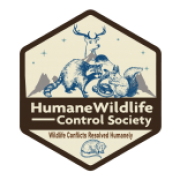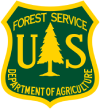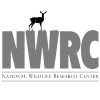Humane Wildlife Control in Denver, CO
The Humane Wildlife Control Society recommends non-invasive solutions to resolve human-wildlife conflicts. This includes:
Determining if the issue needs to be addressed at all
Opting for preventative measures first
Opting for wildlife exclusion as opposed to trapping
If trapping is the only way to solve the problem do so humanely
The Humane Wildlife Control Society screens candidates prior to recommendation. Our process requires any company we recommend to meet the following criteria:
Is properly licensed in Colorado for wildlife control
Carries appropriate business licenses and insurance
Complies with all Colorado laws and regulations for wildlife control
Adheres to the humane principles listed above.
In Denver, Colorado we recommend Humane Wildlife Removal Denver for professional wildlife control services. This is a private company that charges for their services.
Contact Information:
Pest Animal Removal Denver
720-259-3806
If you have any wildlife issues that can be handled by the state government agency for free, the Colorado Wildlife Commission can help.
State Contact Information: 303-297-1193
The State Department of Agriculture may also be able to address your wildlife problem for no charge.
USDA Contact Information: (303) 869-9004
Humane Wildlife Management in Denver, Colorado: A Practical Approach Addressing Wildlife Conflicts in Denver: Prevention as a Primary Strategy: Humane wildlife management is not simply about compassion; it is a practical approach that minimizes long-term conflicts and promotes ecological balance.
Denver’s dynamic urban landscape, coupled with its proximity to natural habitats, necessitates a pragmatic and responsible approach to wildlife management. Effective strategies must prioritize public safety and property protection while adhering to humane principles.
Denver residents and businesses are encouraged to implement preventative measures to minimize wildlife interactions. This includes securing trash receptacles, eliminating potential food sources, and maintaining property to prevent access.
Proactive measures reduce the likelihood of wildlife entering structures and creating conflict.
Humane Exclusion Techniques:
When wildlife does enter structures, humane exclusion methods are prioritized. This involves utilizing one-way doors, barriers, and other techniques that allow animals to exit safely without causing harm.
This approach minimizes stress and injury to the animals involved.
Responsible Relocation:
Relocation is considered only when necessary and in accordance with Colorado Parks and Wildlife regulations.
Relocation efforts are conducted with careful consideration for the animal’s well-being and the ecological impact on the relocation site.
Public Health and Safety Considerations:
Wildlife can carry diseases that pose risks to human health. Effective wildlife management strategies are essential for mitigating these risks.
Addressing aggressive wildlife behavior is also a priority, ensuring the safety of Denver residents.
Property Protection:
Wildlife can cause significant property damage. Humane control methods are implemented to protect structures and infrastructure from damage.
Damage from rodents, and larger animals is a serious concern.
Regulatory Compliance:
All wildlife management activities in Denver must comply with state and local regulations.
Adherence to these regulations ensures responsible and ethical practices.
Education and Awareness:
Educating the public about responsible wildlife interactions is crucial for fostering coexistence.
Providing information on preventative measures and wildlife behavior empowers residents to minimize conflicts.
Key Considerations:
Lethal control is considered a last resort, employed only when necessary to protect public safety or property and when all other humane options have been exhausted.
Denver’s wildlife is part of the local ecosystem, and ethical handling of these animals is paramount.







